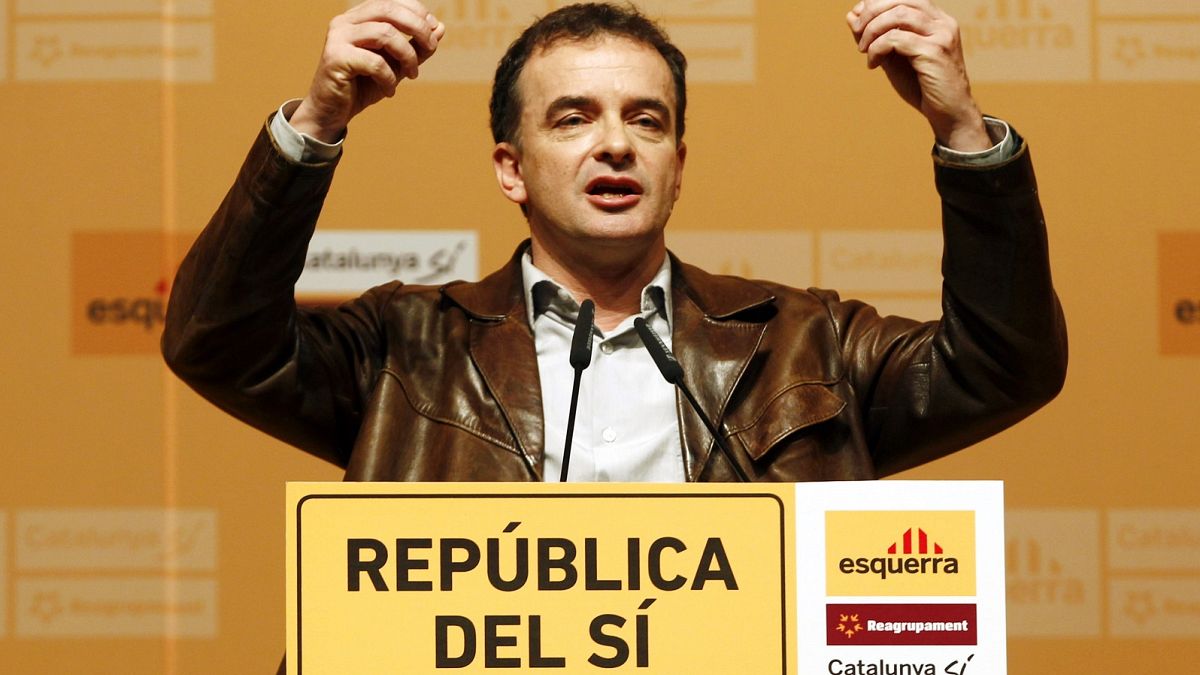The lack of action at the European level regarding the members of the Catalan government and leaders of the civil society in pre-trial detention or exiled, generated disappointment.
As we celebrate Europe Day on May 9, it is a good time to assess where the European project stands and where it is headed. The European Union is now living one of the most complex and critical times in its history, facing challenges to its core values through the rise of Eurosceptic and extreme right-wing political parties, and challenges to its future such as Brexit.
Often overlooked is one of the main debates about the European Union which focuses on the future of the subsidiarity principle that broadly defines how decisions should be dealt with at the most immediate level, closer to the citizens that are most affected. How can we build a more democratic European Union, capable of increasing the weight of the local and sub-state governments in the decision making process which is currently defined by nation states? How can we enhance the European identity of its citizens?
Catalan society has embraced the idea that the European Union will be stronger if it takes its diversity, which at the same time is its richness, into consideration. This is why the Catalan Government and the civil society have always provided the European debate with proposals, best practices, innovations and projects. From Catalonia we actively contribute to define the plural Europe of today and tomorrow.
An example of the European Union’s democratic crisis has been its inability to react properly to the refugees and migrants coming from North Africa due to the lack of agreement between the Member States. In contrast, many regions and European cities such as Catalonia, with Barcelona at the helm of this discussion, were keen on welcoming refugees. Another example of this debate are the actions taken to minimize the effect of climate change. In the context of a global strategy, we need to adapt climate change policies to the particularities of each ecosystem and the realities of the diverse regions of the European Union. Again, it is those governments closest to the citizens that must be taken into account.
For the 2021-2027 budget, the European Commission is planning to recentralize policies and has not promoted the idea of fostering dialogue between European institutions and local governments. For instance, the future common agricultural policy does not take into account the rural development regional strategic plans. In Catalonia, this has been a useful system in order to promote new dynamics and empower local stakeholders to focus funding programs on local needs. Our aim would be to maintain the regional strategic plan system for the European Union’s rural development policy, and apply it to the direct funds for producers in order to fulfill their socioeconomic and environmental objectives and to promote resilience facing climate change.
Catalonia has never given up its feeling of being European nor its conviction of being part of the European Union. The silence of European institutions and some politicians after the police brutality against citizens voting on the October 1st referendum in 2017 was the source of much criticism. The lack of action at the European level regarding the members of the Catalan government and leaders of the civil society in pre-trial detention or exiled, generated disappointment. However, Catalan society has reinforced its faith in European justice, and in Europe we have found empathy within a space where we can create new alliances with political and social stakeholders from other countries.
The Government of Catalonia believes in the idea of building a Catalan Republic through peaceful and democratic means, which is fully integrated in Europe. It takes European values as its own. It is a political project that believes in the strengthening of the European identity by tearing down national borders, and fostering a common European space by sharing solutions and resources to face our common needs. A clear example of this spirit is the Cerdanya Cross Border Hospital, a service managed by both French and Catalan administrations which is a first in Europe. In fact, Catalan republicanism wants to bring decision making closer to its citizens because it believes that it is the only way in which the citizenship, with its diversity, can have a bigger role in the construction of a common European project.
The Catalan Government wants to continue being a proactive partner in the construction of Europe. As such we defend the importance of local governments when implementing European legislation. From social and regional cohesion, to neighbourhood and cooperation policies, including rural and fishing policies, or research and innovation, and sustainable development. We will not forgo our competences nor our will to bring Europe closer to Catalonia and Catalonia closer to Europe.
Alfred Bosch is the Minister for Foreign Affairs of Catalonia, Meritxell Serret is the Representative of the Catalan Government to the European Union.
____________
Are you a recognised expert in your field? At Euronews, we believe all views matter. Contact us at view@euronews.com to send pitches or submissions and be part of the conversation.
